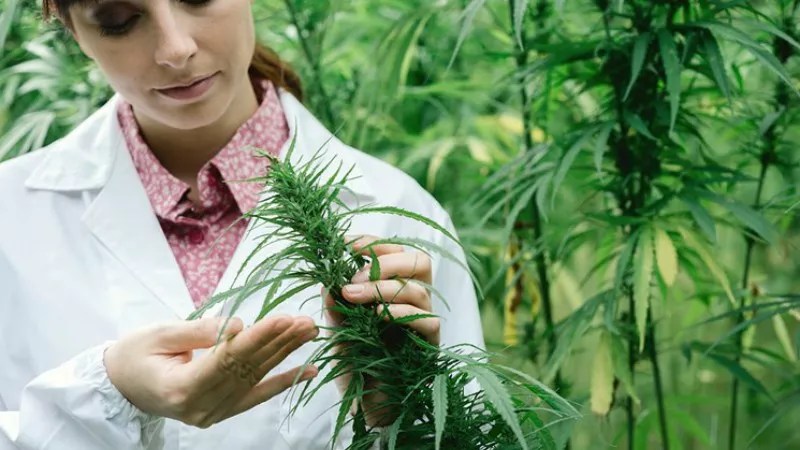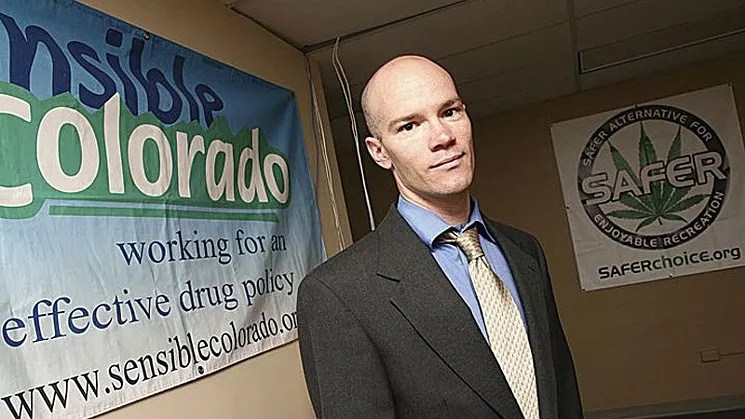
iStock/cyano66

Audio By Carbonatix
Ten years ago this 4/20, the medical marijuana scene in Colorado, which had been slowly growing since the 2000 passage of Amendment 20, was building up to its first big boom. But given the legalization of limited recreational marijuana sales made possible by 2012’s Amendment 64, as well as the impact that the state’s retail cannabis industry has had across the globe since then, is Colorado MMJ yesterday’s news?
Not according to attorney Brian Vicente, who spent years advocating for patients before co-authoring Amendment 64. But while he doesn’t think medical marijuana is bound for extinction in Colorado, he acknowledges that it’s under attack.
“The fact that medical marijuana is in the state’s constitution means it’s not going away,” Vicente says. “However, I do think there’s been a concerted effort to dilute Amendment 20 in certain ways.”
Our 2010 medical marijuana timeline shows how the seeds of the medical marijuana revolution began sprouting a few years earlier. The number of patients on the state’s MMJ registry was building throughout 2008, and doubled to 5,000 by January 2009. During that same span, the number of MMJ dispensaries in Colorado grew even more quickly, going from just two to around thirty.
The patient figures skyrocketed from there; in 2010, the total passed the 100,000 mark. But the latest digits from the Colorado Department of Public Health and Environment aren’t quite that impressive. The CDPHE reveals that 87,493 patients had an active medical marijuana registration as of March 2018, and 4,739 patients received a physician certification for MMJ that month.

Brian Vicente in 2012, the year Amendment 64 passed.
File photo
Also down are the most recent medical marijuana sales figures in Colorado. While retail sales in February 2018, the most recent month with final data, added up to $85.9 million, the medical side registered just $26.6 million, the lowest figure since 2014, when Colorado’s Department of Revenue began tracking the information.
The slippage makes sense to Vicente, given what he characterizes as “continued efforts to try to funnel patients into the recreational market to get more tax revenue. If you talk to elected officials behind closed doors, they’re very eager to capture more marijuana revenue and ultimately push patients into the recreational market, where marijuana is taxed at a higher rate. We now have a statewide law that mandates only twelve plants per household, and that’s a direct shot at caregivers who were legally growing more plants and providing them to individuals through a patient-collective model rather than a dispensary model.”
On top of that, Vicente continues, “even though you have Colorado Springs, which is standing strong in just having medical marijuana, we have places like Aurora, which focuses on recreational.”
And more than that. As noted on a page on Aurora’s website,“Medical marijuana businesses, including medical marijuana centers or dispensaries, medical marijuana cultivation facilities, and medical marijuana-infused product manufacturers, are not permitted to operate within the city.”

Back in 2011, this Cannatol pill containing 7.95 mg CBD was a relative novelty on the Colorado marijuana scene.
Photo by William Breathes
The reason for not allowing MMJ businesses, Vicente feels, comes down to dollars and cents: “Communities across the state are interested in driving tax revenue, and recreational is a better tax source than medical.”
But other medical marijuana developments over the past decade have been much more positive, Vicente suggests.

A more recent photo of Brian Vicente.
File photo
“I think we’ve seen really stunning progress on medical marijuana in Colorado in terms of pushing progressive policies and getting officials to accept marijuana as medicine,” he says. “We can look back at the CDPHE and its sort of historic negativity about medical marijuana. I’ve sued them multiple times and held large protests with veterans and others trying to get them to add new qualifying conditions for medical marijuana. But now they’ve grown supportive of adding PTSD to the list of patient conditions, and they’re at least somewhat supportive of adding autism. I think that’s reflective of our government opening its eyes to medical marijuana, but it’s also indicative of public support and how far it’s come.”
On top of that, “we’ve really seen Colorado embrace CBD. Five years ago, I think there were only a couple of thousand people who could tell you what that was. But now, you can see CBDs on the shelves of Lucky’s Market in Boulder, and there’s a huge industry in Colorado around this one cannabinoid. It’s really being heralded as having great medical value and has led to a lot of business opportunities for entrepreneurs.”
In Vicente’s view, another step in the right direction is “the state finally requiring that patients’ medicine be tested. At one time, I think it was an economic issue; it would have been too burdensome to send small quantities of cannabis to a testing lab. But once adult use came in, more testing did, too, and now patients know more about what they’re getting as a product.”
Equally noteworthy to Vicente is the number of politicians who are pro-medical marijuana even if they’re against recreational sales. “You have a vast majority of Americans who are for medical marijuana from Alaska to Alabama,” he points out. “I think it’s in the 90 percent range, and since Colorado’s medical marijuana law went into effect eighteen years ago, we’ve seen an additional 20 to 25 states come on board with medical marijuana programs. So I think elected officials and others in the community understand marijuana has medical value, and they’ll continue to support research that seeks to refine individual product lines to better serve patients.”
Vicente’s bottom line: “Medical marijuana will never really go away”…whether or not money-hungry Colorado politicos wish it would.